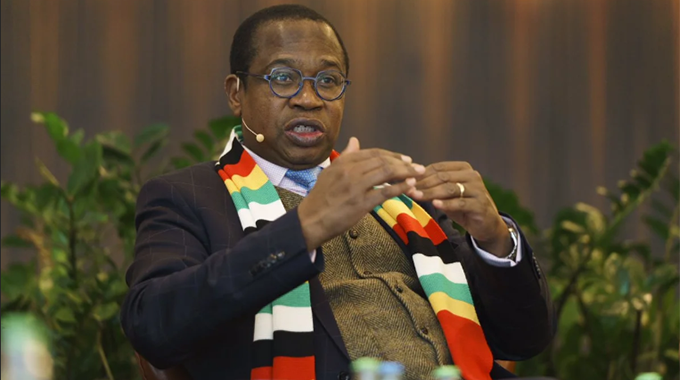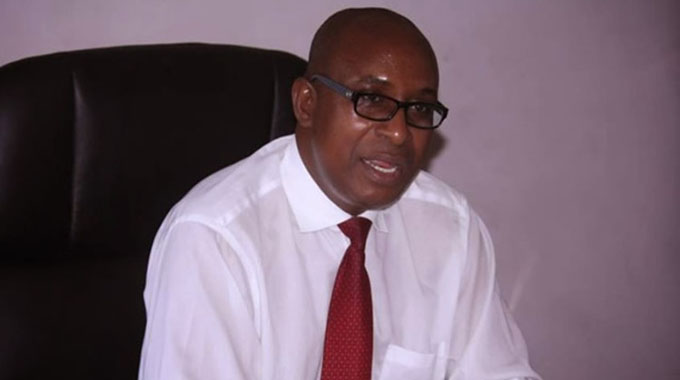Editorial Comment: Economy in good shape to survive Covid-19

The Zimbabwean economy is in far better shape than anyone expected or predicted after the ravages of drought and the Covid-19 lockdowns around the world and locally, and while we can now expect an economic decline of around 4.5 percent, in line with average global declines, we will still be functioning at year end.
In his mid-year Budget review yesterday, Minister of Finance and Economic Development Prof Mthuli Ncube was able to reassure the nation on two very critical issues, fiscal and monetary stability. On the fiscal side, for which the minister is directly responsible, he ended the first six months with a budget surplus of $800 million.
This is an astonishing achievement when you consider the extra payments he has had to make to cope with Covid-19 and the potential decline in some revenues as a result of the lockdowns. And the minister was quite confident he can hold the line, and seek no financing from the Reserve Bank of Zimbabwe and keep all his spending within the budgets, which Parliament has to approve.
The extent of this achievement is important. The First Republic borrowed and borrowed until its credit ran dry and then printed, even printing what amounted to fake US dollars during the dollarisation era, to meet the gaps between revenue and expenditure.
Prof Ncube changed that and, in what amounts to his first major challenge when temptation beckoned, he managed to stay within his budget during a serious emergency.
This fiscal stability is an absolute requirement if Zimbabwe is to progress and grow. Without it all our efforts will go to waste. With it we can overcome. We still have the inherited problems, and the effects of these were worse than we expected, but we are climbing out of our swamp, and climbing out in a very bad year.
The other area is the current account. This year our exporters are expected to earn US$1,2 billion more than our importers spend. Even in the first five months exporters earned US$2.35 billion, while importers spent US$1.55 billion. This in fact is why, as Prof Ncube noted, the change to the auction system was possible, to use market forces to set exchange rates and select what we import, rather than have this done by decree and backroom management.
This is another Second Republic achievement, by the way. Until the last few months of last year Zimbabwe always imported more than it exported, and had to use aid payments and borrowings to meet the gap. Now we do it the same way everyone else does it, properly.
These two fundamentals, a balanced budget with no fancy central bank funding and exporting more than we import, are what the rest of our hopes and dreams are built on.
By avoiding the temptation to mess around, Government and the private sector have shown that the nation has a remarkable amount of common sense and that the market forces introduced to allow business to expand are far more effective than the crony capitalism that we are racing away from.
Prof Ncube managed one or two people-centred tax adjustments. For a start those earning under $5 000 a month won’t pay income tax, and the rest have had the tax brackets widened significantly so that only that portion of incomes of $100 000 a month is now charged the top rate of 40 percent. This also addresses a rather important problem in Zimbabwe.
People were always complaining about high income taxes. Actually our top rates were not that bad. The problem was that tax brackets were so narrow that people with quite modest salaries were being treated in the same way as the super rich in other countries.
Even with inflation, a monthly salary of $100 000 a month cannot be regarded as “modest”. The middle classes are no longer treated as rich and the bottom layers in the formal sector no longer pay taxes.
This can be done without wrecking Prof Ncube’s budget surplus because inflation is seeing salaries rise, although not as much as almost everyone would like. But the minister has decided that the percentage he takes in tax from the national salaries bill will remain roughly the same.
He has also granted some tax concessions to importers of fertiliser chemicals, and tax breaks to those who donate to health institutions or who build student accommodation at universities. But those breaks simply mean they do not pay taxes on their donations or building costs.
He is also closing loopholes in VAT collection, has extended his 2 percent transfer tax to foreign currency digital payments within Zimbabwe, wants people to be totally tax compliant before he even looks at their applications for duty rebates, and is planning on finding a bit of cash so smuggling can be tackled in a big way, with drones now being planned for border patrols.
When most people were expecting something a lot worse after drought and Covid-19, the minister, without underestimating the problems, and in some sectors these are devastating, also brought a message of hope. We will not go under. We can grow again. We will win.










Comments